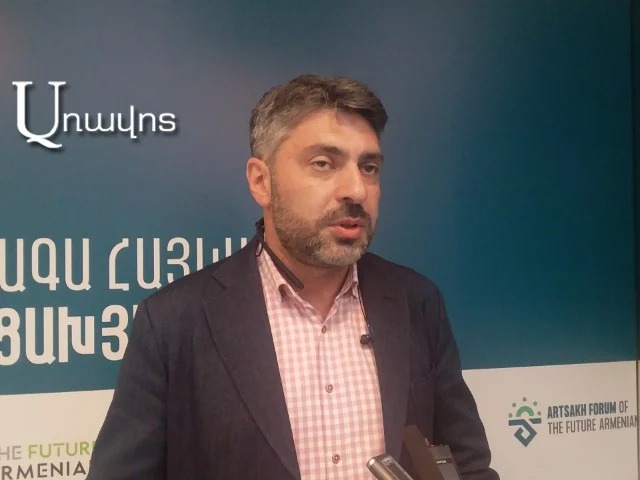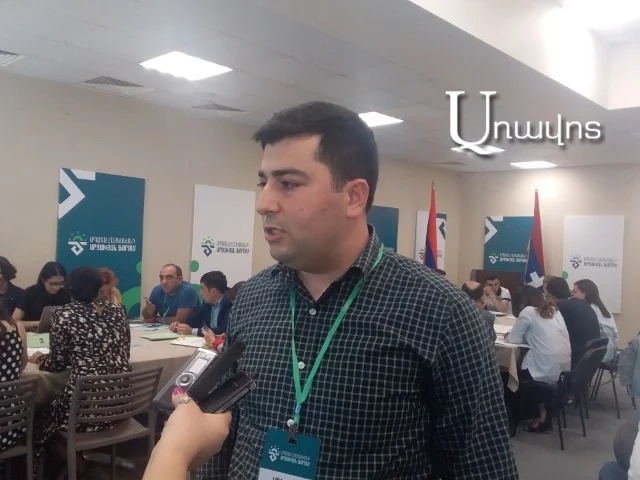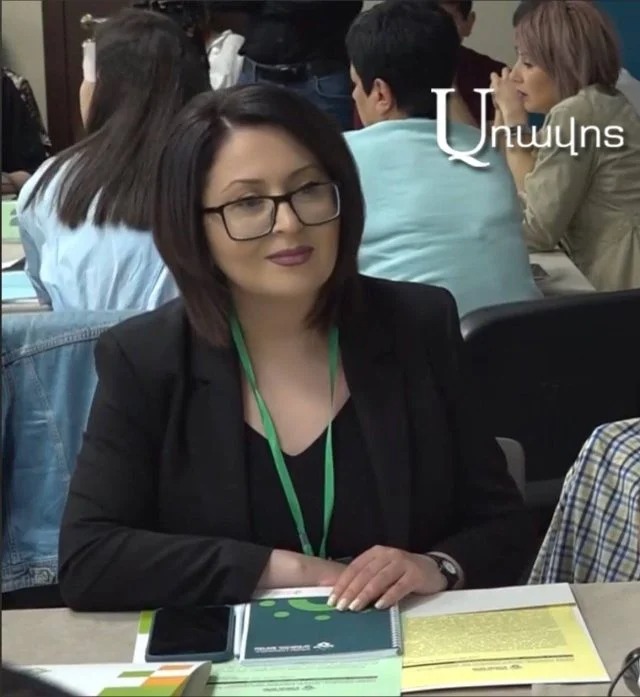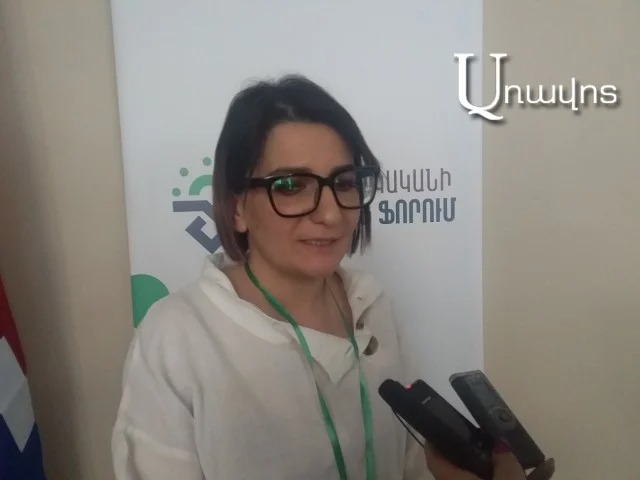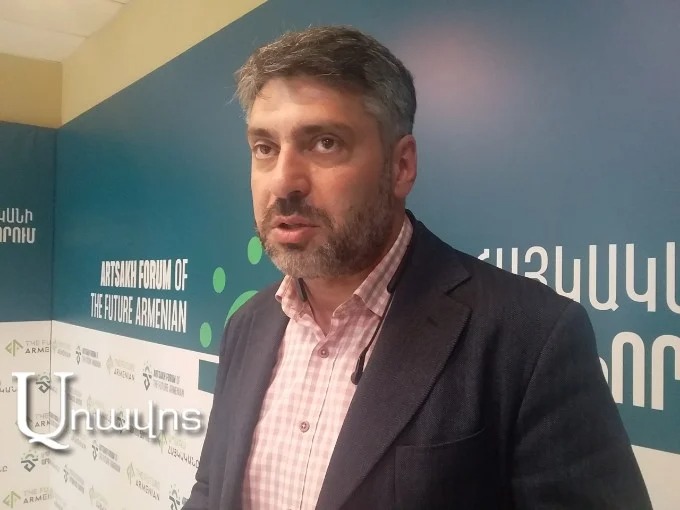According to Mihran Tadevosyan, a financier-economist, lecturer at Artsakh State University, participant of the Future Armenian Artsakh forum, taking into account the 44-day war and its consequences, the demographic problems in Artsakh are more acute today. In this regard, too, he is enthusiastic about the discussions of the Future Armenian forum.
The forum took place on May 22 in Stepanakert. The topic of discussion at the forum was demographic issues.
The financier-economist, especially today, considers the existence of equal opportunities, the provision of inclusion in all spheres, be it economic growth, its fair distribution, etc., as an important circumstance in Artsakh. As for the real demographic problems, Mihran Tadevosyan considers it important to encourage mechanical growth in Artsakh, in particular, to provide socio-economic and housing conditions for Diaspora Armenians and Armenians, which will lead to an influx, as it is difficult to achieve the targeted indicators only by natural growth.
Read also
In this regard, Tadevosyan emphasizes the existence of a national program, as it will reflect the goal and the ways to achieve it. At the same time, the issues of identity recognition must be pushed forward. “There is a 3,000-year-old history here, there is Armenian activity, there are consequences, which will definitely be of great benefit to our compatriots.” Tadevosyan also highlights the existence of business interests and mentions that today in Artsakh there are quite good tax conditions, which will allow our compatriots to invest, earn income, develop and develop. According to him, in case of pursuing the right policy, the discussions of the forum, and the existing visions, will definitely become a reality.
Candidate of Historical Sciences, Associate Professor, and Advisor on International Relations to the President of the Artsakh Republic Nelly Baghdasaryan notes, “In any case, let there be no false impression that there is a demographic crisis in Artsakh. There is no demographic crisis in Artsakh. It’s just that due to the post-conflict realities, there are normal developments.” Therefore, she highlights the importance of the forum in the following area: how to mitigate these natural developments to some extent? She singled out the proposals related to quality demography, in particular, the role of the state in promoting quality demography.
Baghdasaryan detailed, “Security issues were singled out, in particular, how can the solutions to those problems contribute to demography? We talked especially about the importance of network psychology work. I also attach importance to the work of the media. In terms of information, there is a rather serious problem, as we have recently encountered several realities. We are talking about different numbers of the population of Artsakh, which is a serious information problem. Artsakh has a population of 150,000, and if 30,000 Artsakhis currently live in Armenia, that population will not cease to be the population of the Republic of Artsakh. At the first opportunity, if conditions are created for them, they will return, most of them are ready to return. It is in the presentation of all this that the media has a lot to do.”
Is it possible that the results of the discussions will become tangible? To the question, Baghdasaryan answers, “Definitely yes, because as far as I know, a state demographic strategy is being prepared and I think that all the proposals will be discussed and will find their place in the strategy. The results of the forum will greatly contribute to the development of the program.”
In a conversation with Gohar Grigoryan, an employee of the Martuni Social Psychological Center, a psychologist by profession, after the 44-day war, many villages in the Martuni region have become borderlands, and demographic issues are evident at every step. “What brought us back after the war, and what keeps us in Artsakh? Despite the fact that there are no security guarantees, no quality infrastructure, no education, no health care, no components are provided. Many of us have been brought back by our children, our yard is the best, I can not live far from our yard,” she said. Gohar shared her judgments, and she also voiced them during the discussions.
“After the war, it seemed to me that people would return to Artsakh on ideological grounds. I had high hopes that our compatriots living in the Diaspora would unite around the idea that Artsakh was our achievement for the last 100 years, and losing it, we would lose our identity. But, unfortunately, now we must also state that they come back to Artsakh to have material security, because they still continue to provide state support, pay social payments. There is this too. I hope that people will come back on ideological grounds as well,” Grigoryan said.
By the way, Vardan Marashlyan, co-founder and director of the Repat Armenia Foundation, is one of those people who has an “ideological” approach to Artsakh, especially after the 44-day war. The Marashlyan photo studio belonging to Vardan Marashlyan’s family was established in Artsakh immediately after the war. This investment does not pursue economic interests, but will have a serious psychological impact. At least, the founders are convinced of that. There is also a social component – working with children to better understand and visualize their identity.
In discussions with the Future Armenian forum, Vardan Marashlyan considers the conversations with different layers of the society, inside and outside Artsakh, to understand the problems, the directions of solving them, the tools, and the inventory of what the state and the Diaspora should do to be important. “For example, how is the birth rate perceived in the family? As a means of social assistance, or do families realize the existence of each child, the provision of their educational and social status, and the prospects for development?” He hopes that the discussions in the forum will gain substance, especially since there are many people who are concerned about problems and ready to take serious action; they just need an appropriate environment.
Nelly Grigoryan




















































